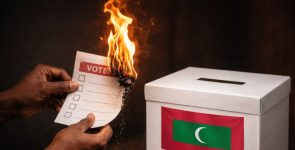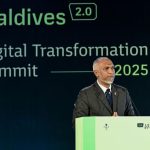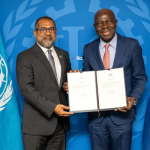
The soldier’s duty is to defend the nation. The police officer’s is to uphold the law. These roles are already heavy with responsibility, yet in the Maldives, they have been complicated by something else: business.
The Sifainge Cooperative (SIFCO) and the Police Cooperative Society (POLCO) were not created to compete in the market. They were established to provide welfare and support to their members, offering affordable goods, small services, and social security. Over time, however, they expanded into sprawling enterprises. SIFCO today runs retail outlets, catering operations, a hospital, real estate and even fireworks ventures. POLCO, too, has reached far beyond its mandate, including into property development.
This expansion has come at a cost. By straddling the worlds of service and commerce, these cooperatives have blurred the line between duty and profit. They enjoy privileges no private competitor can hope to match, while wielding the authority of the uniform. That imbalance discourages fair competition and undermines the trust the public should place in its defenders.
And corruption has flourished in this grey zone. POLCO’s housing projects, meant to ease the lives of police officers, became a billion-rufiyaa debacle marked by stalled construction, inflated costs, and contracts linked to the same tight circle of interests. Parliament’s Finance Committee is now sifting through audits that expose irregularities stretching back years. What was meant to provide welfare instead drained public funds and fuelled public outrage.
The rot is not confined to failed housing schemes. In August, the police confirmed that USD 30,000 in cash went missing from the evidence lockup. The money, seized as evidence in 2019, was discovered short during a review earlier this month. A bag of damaged notes was found where it had been kept, and while a criminal probe has been launched, no progress has been made public since the initial confirmation. This is not the first time allegations of missing property have surfaced, but it is the first time the police themselves have acknowledged such a serious breach. It adds another layer to the picture of corruption and mismanagement eroding public confidence in the institutions charged with safeguarding law and order.
SIFCO’s ventures, meanwhile, raise similar questions. What began with small canteens for soldiers has grown into one of the country’s largest catering services, a retail chain, a military hospital, and ambitious real-estate projects. These businesses are not small welfare schemes. They are commercial players, competing in the market with an unfair advantage. They are enterprises run not by entrepreneurs but by institutions meant to protect the state.
The argument for their existence rests on welfare. Soldiers and police deserve support, better housing, and social safety nets. That is true. But the method matters. In countries with stronger governance frameworks, welfare for security personnel is delivered through transparent state policies or public and private partnerships. The British police do not run property companies. The German army does not compete with supermarkets. Where welfare is needed, it is provided by the state, not through opaque commercial arms of security agencies.
The danger is not just financial waste but a corrosion of legitimacy. Security forces rely on public trust. If citizens come to see them as players in business scandals, implicated in corruption rather than shielding the nation from it, the credibility of the uniform itself is weakened.
The lesson is clear. Welfare for those in uniform should not require business empires. The state must step up with transparent policies, funding, and oversight. And the cooperatives must be stripped back to their original, modest purpose or dissolved altogether.
The soldier should not be a shopkeeper. The police officer should not be a property developer. And when evidence itself disappears from police custody, the public has every reason to question whether those sworn to uphold the law are instead eroding it from within.











